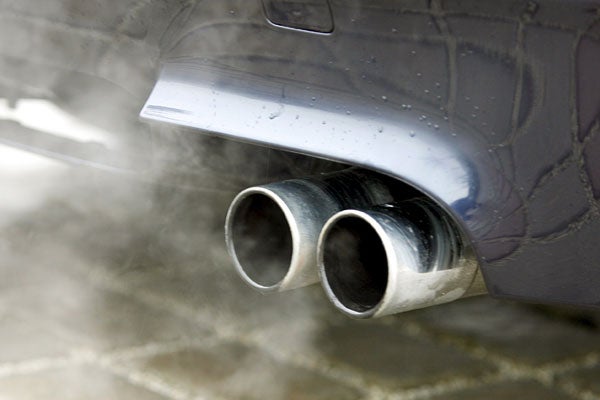Carbon Tax: Won’t Reduce Deficit or Temperature
Nicolas Loris / Curtis Dubay /
The Congressional Research Service (CRS) released a report that should be a cause for concern to all who believe in limited government. In it, CRS argues that a new tax on carbon could cut the deficit in half.
There is nothing special about a carbon tax in terms of raising revenue. CRS could have written that significantly increasing the income tax or payroll tax could cut the deficit in half. They could’ve written the same thing about instituting a new value-added tax as well.
But cutting the deficit isn’t as simple as increasing taxes. Higher taxes hurt the economy. CRS failed to mention the devastating impact that higher taxes would have on the economy. The extra revenue that would result from a carbon tax would certainly be lower than CRS estimates after considering the economic slowdown that would no doubt result.
About 85 percent of America’s energy needs are met by fossil fuels. A carbon tax would directly raise the cost of electricity, gasoline, diesel fuel, and home heating oil. This would disproportionately hurt lower-income families, who spend nearly a quarter of their budgets on energy.
But the economic pain for consumers doesn’t stop there. Businesses, faced with higher energy costs, would pass those costs on to consumers. Higher sticker prices for products lower consumer demand, and as a result, businesses must cut production and jobs.
Supposedly, the goal of a carbon tax is to reduce carbon emissions and do something about global warming, not to raise extra revenue. However, reduction in carbon dioxide emissions would yield negligible benefits in terms of temperature reduction.
A new Heritage Foundation report, “Environmental Conservation: Eight Principles of the American Conservation Ethic,” contains free-market, conservative environmental principles—one of which is that efforts to reduce, control, and remediate pollution should achieve real environmental benefits. A carbon tax would produce almost immeasurable benefit in terms of global temperature reduction.
Even EPA administrator Lisa Jackson admitted that a unilateral approach to reducing greenhouse gas emissions would have little effect, and developing countries have made it quite clear that they’re not going to cut their CO2 emissions.
The CRS report also shows how new revenue streams succumb to the political pressures of Washington. Some conservative groups advocating for a carbon tax are pushing for revenue neutrality, but the CRS report indicates that the idea is already being smothered in the crib.
Suggestions have also been made to use the revenue to ease the burden on lower-income families or to ensure that cuts aren’t made to defense spending. History shows, however, that any time more money comes into the coffers of the federal government, there’s a political interest to spend it somehow.
As it pertains to the deficit, accepting the misguided CRS approach to deficit reduction ignores the real cause of the deficit: too much government spending. Government spending has grown markedly in recent years and has brought us to the precipice of an economy-crushing debt crisis. On its current trajectory, spending will continue growing unsustainably.
Spending is the cause of deficits, not low revenue. Tax revenue, while below historical levels right now, would quickly rise back to historical levels if the economy began growing. But the economic recovery remains hampered by the uncertainty over Washington’s policies, in particular Taxmageddon and sequestration.
Congress and the President should deal with those threats instead of threatening to impose a harmful carbon tax. Washington should then rein in spending—including entitlements—to get the U.S. fiscal house in order.

